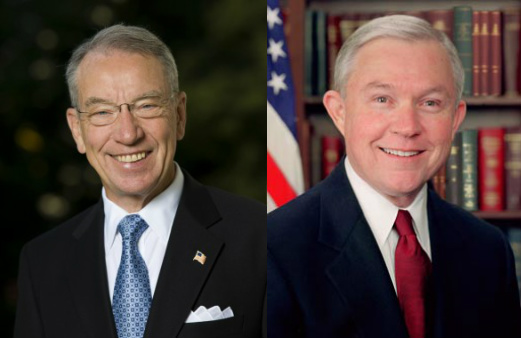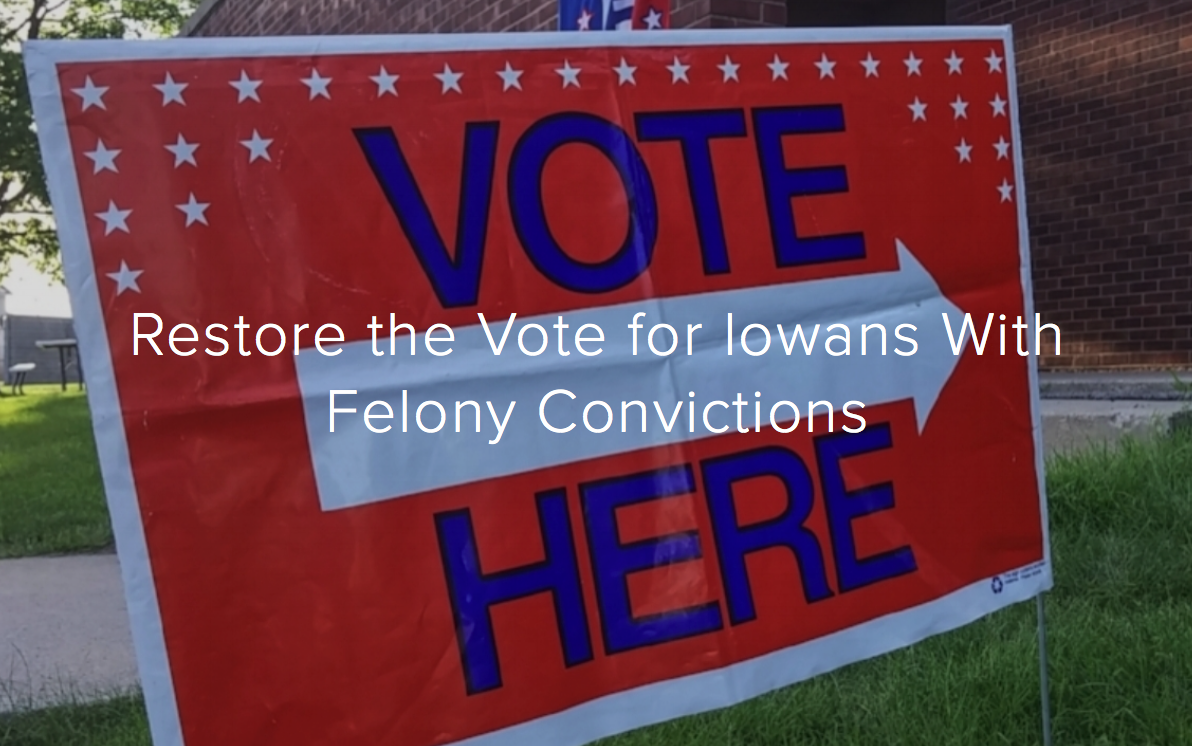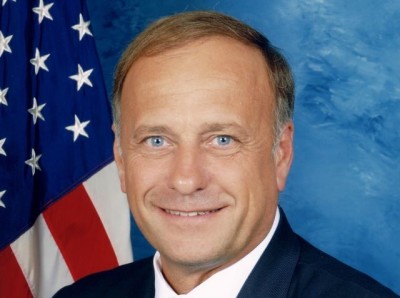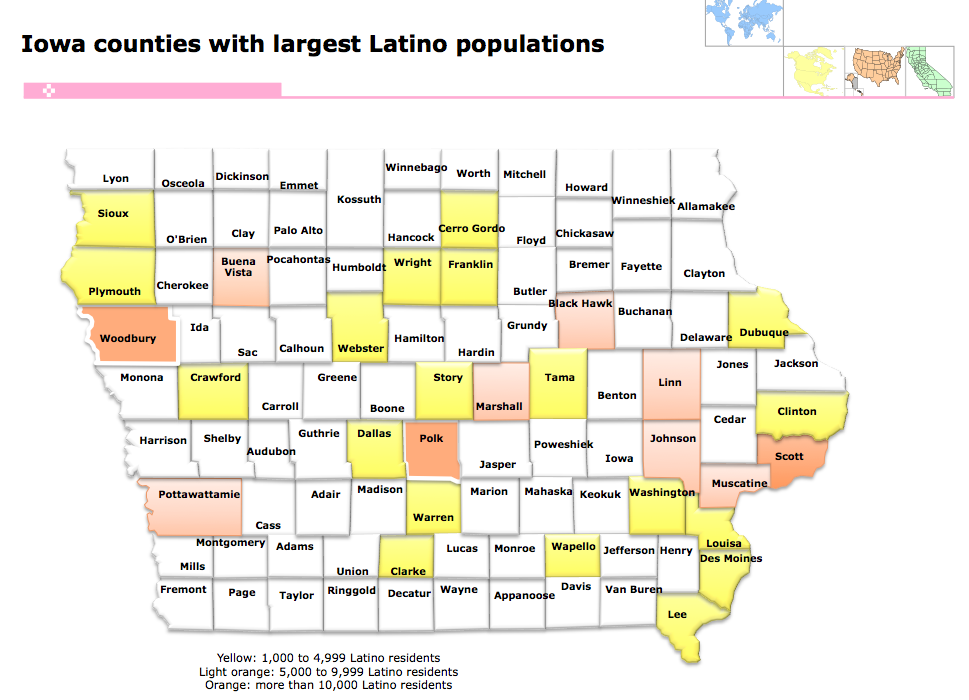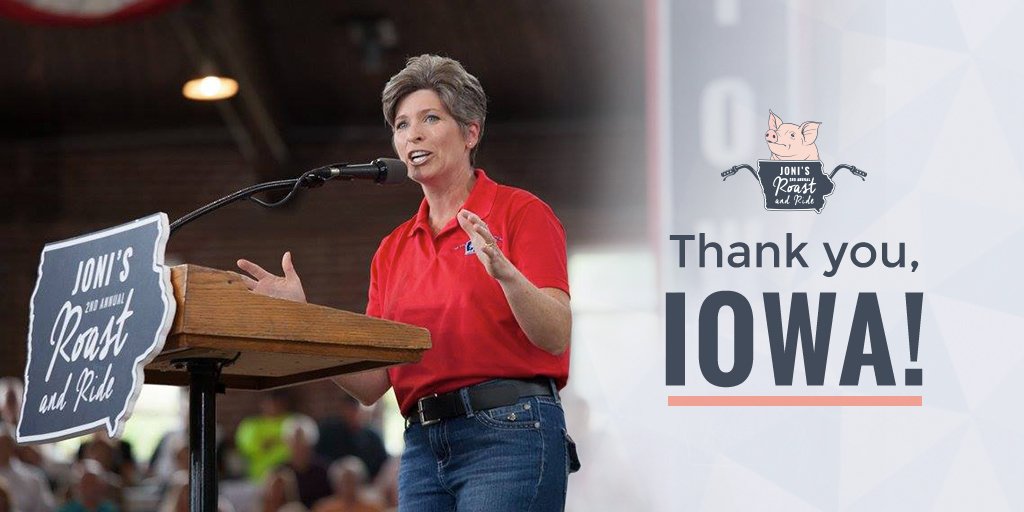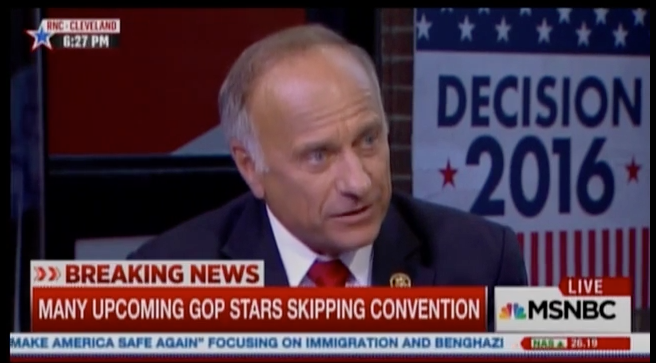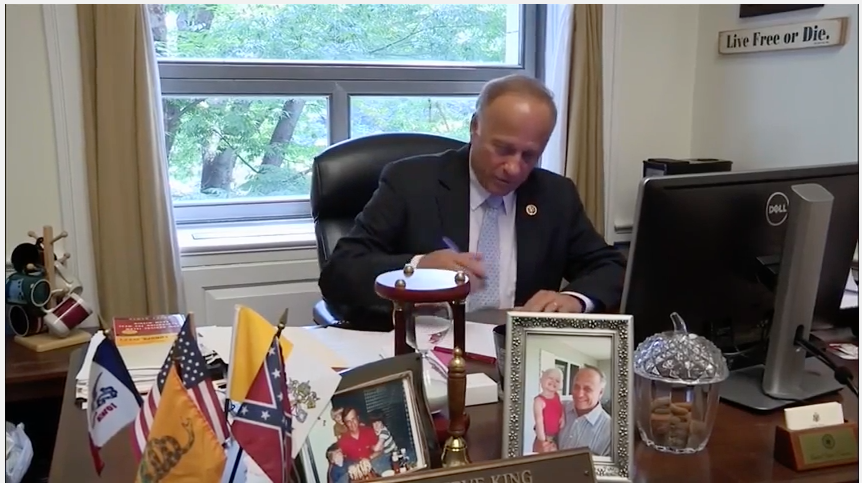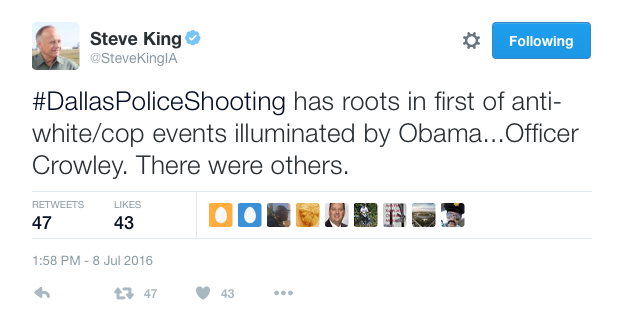The Iowa Supreme Court has rejected a lawsuit challenging state policy on disenfranchising all felons. Four justices found “insufficient evidence to overcome the 1994 legislative judgment” defining all felonies as “infamous crimes,” which under our state’s constitution lead to a lifetime ban on the right to vote or run for office. Chief Justice Mark Cady wrote the majority ruling, joined by Justices Bruce Zager, Edward Mansfield, and Thomas Waterman. They affirmed a district court ruling, which held that having committed a felony, Kelli Jo Griffin lost her voting rights under Iowa law.
Justices Brent Appel, Daryl Hecht, and David Wiggins wrote separate dissenting opinions, each joined by the other dissenters. I enclose below excerpts from all the opinions, along with early political reaction to the majority ruling and a statement from Griffin herself.
The American Civil Liberties Union of Iowa filed the lawsuit on behalf of Griffin in November 2014, seven months after an Iowa Supreme Court plurality had stated, “It will be prudent for us to develop a more precise test that distinguishes between felony crimes and infamous crimes” that disqualify Iowans from voting.
Three of the six justices who participated in that 2014 case decided Griffin v. Pate differently. In Chiodo v. Section 43.24 Panel, Cady wrote and Zager joined the plurality opinion, which left open the possibility that not all felonies rise to the level of infamous crimes. Wiggins dissented from the Chiodo plurality, saying the court should not rewrite “nearly one hundred years of caselaw” to “swim into dangerous and uncharted waters.”
All credit to Ryan Koopmans for pointing out in March that given how quickly the court had decided Chiodo, “Having had more than a couple days to think about it, some of the justices could easily change their mind.” The justices were on a compressed schedule in Chiodo because of the need to print ballots in time for the early voting period starting 40 days before the 2014 Democratic primary. Ned Chiodo was challenging the eligibility of Tony Bisignano, a rival candidate in Iowa Senate district 17.
Side note before I get to the key points from today’s decisions: An enormous opportunity was missed when the state legislature did not revise the 1994 law defining infamous crimes between 2007 and 2010, when Democrats controlled the Iowa House and Senate and Chet Culver was governor. The issue did not seem particularly salient then, because Governor Tom Vilsack’s 2005 executive order had created a process for automatically restoring the voting rights of most felons who had completed their sentences.
But Governor Terry Branstad rescinded Vilsack’s order on his first day back in office in January 2011. During the first five years after Branstad’s executive order, fewer than 100 people (two-tenths of 1 percent of those who had been disenfranchised) successfully navigated the process for regaining voting rights. I consider the policy an unofficial poll tax, because getting your rights back requires an investment of time and resources that most ex-felons do not have. Today’s majority decision leaves this policy in effect, with a massively disproportionate impact on racial minorities.
Continue Reading...









